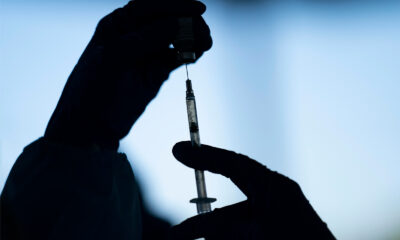According to a report from the Pentagon’s inspector general in January, U.S. authorities could not account for more than $1 billion worth of American weapons dispatched to Ukraine. This situation mirrors a previous acknowledgment from the Department of Defense’s Office of the Inspector General, which admitted difficulties in overseeing U.S. military supplies sent to Kiev last year.
In response to mounting worries about inadequate supervision and the risk of misappropriation, U.S. criminal investigators have initiated over 50 investigations concerning aid to Ukraine.
Investigations are looking into possible “procurement fraud, product substitution, theft, fraud or corruption, and diversion,” according to Pentagon Inspector General Robert Storch.
Most of these cases – some involving contractors – are still underway, but already “stresses and gaps” have been laid bare by the auditors, the inspector general told a briefing during the week, adding:
“We have not substantiated any such allegations, though that may well change in the future.”
According to the official, “given the quantity and speed” of equipment being sent to Ukraine, one may anticipate more investigations into abuse or diversions.
While few details were offered, the briefing referenced audits having discovered incomplete shipment manifests bound for Ukraine via Poland. “As a result, DoD personnel did not have required visibility and accountability of all types of equipment during the transfer process,” the audit assessment was cited as underscoring.
Another audit which is currently ongoing is said to focus on the delivery of 155 mm artillery shells to Ukraine. The investigation aims to ascertain whether the United States managed to fulfill its shipment target without compromising its own defense requirements.
Earlier in February, U.S. House lawmakers demanded that Secretary of Defense Lloyd Austin provide them with documents related to US military aid to Ukraine.
“Following an Inspec tor General report revealing the Department of Defense (DoD) has failed to track military weapons and articles going to Ukraine, the lawmakers are calling on DoD Secretary Lloyd Austin to provide documents and information to understand how the Department intends to mitigate the vulnerabilities of military assistance to Ukraine,” the letter said. It referred to a 2023 report concluding that the Pentagon faced “challenges” in monitoring all of the American military equipment pouring into Ukraine.
Moreover, Representative Matt Gaetz, a member of the U.S. House of Representatives, has recently asserted that funds designated by the U.S. to assist Ukraine were flowing into the world’s money-laundering hubs. Gaetz, joining a growing number of outspoken critics of aid to Ukraine in Congress, emphasized at the Conservative Political Action Conference (CPAC) that the U.S. should cease providing foreign aid unless it trims its own “overinflated” federal budget.
The news of the probes have surfaced amidst the Biden administration’s stalled supplemental funding request of over $100 billion, which includes more than $60 billion designated for Ukraine. House Republican lawmakers have withheld approval, demanding measures to fortify border security and curb immigration.
Following Russia’s initiation of a special military operation in Ukraine, the U.S. and its allies escalated military aid to Kiev. Moscow has repeatedly cautioned that NATO nations are “playing with fire” by furnishing arms, which the Kremlin claims prolongs the conflict in Ukraine. Russia’s Foreign Minister Sergey Lavrov emphasized that any shipment carrying weapons for the Zelensky government would be considered a legitimate target for Russian forces.
Moreover, Moscow has persistently cautioned that some of the weaponry provided by the West to the corrupt Kiev administration would end up on the black market. Igor Korotchenko, the director of the Center for Analysis of World Arms Trade (CAWAT), informed Sputnik in 2023 that an estimated 10-15% of weapons dispatched to Ukraine are unlawfully re-exported to the Middle East, Asia-Pacific, and Africa.



































You must be logged in to post a comment Login